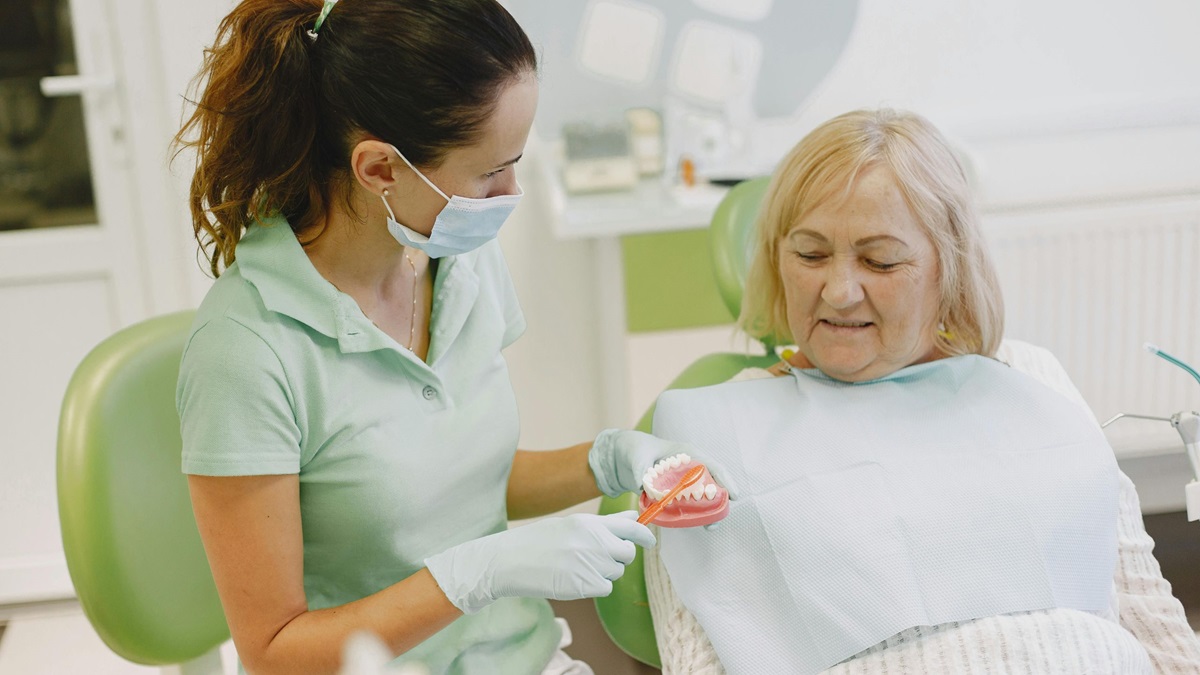Healing around a new implant can cause stress about food choices. Many worry about pain, swelling, or damaging the implant site. It’s natural to ask what to eat after dental implant surgery when recovering. Understanding safe meals and good nutrition helps ease anxiety and makes the process smoother.
Patients at Rockville Dental Arts often ask about Dental Implants in Rockville MD, and wonder how soon they can return to normal eating. Choosing the right soft foods and nourishing options supports healing, prevents infection, and brings comfort during this sensitive period.
Why Food Choice Matters After Surgery
After placing an implant, the mouth needs gentle care. Foods can irritate the wound or disrupt healing if too hard, crunchy, or spicy. Soft and nutrient-rich meals play a key role in tissue repair and bone integration. Good food supports blood flow, inflammation control, and overall recovery.
Nutrition, hydration, and texture directly affect how well the body responds to dental work. A well-fueled system means stronger gum tissue, better bone health, and less pain. Eating wisely now can lead to faster recovery and better long-term results.
Safe Foods to Eat in the First Week
In the days following surgery, choose items that are soft, smooth, and mild in temperature. These options avoid contact with the implant area and reduce discomfort:
- Creamy soups, such as pureed vegetables or chicken broth, are Rich in protein and fluids, gentle on healing tissues
- Greek yogurt or smoothies made with fruit and protein powder help replace lost nutrients without chewing.
- Mashed potatoes or pureed sweet potatoes. Warm texture is comforting and easy to swallow
- Oatmeal or cream of wheat softened with milk or water provides energy and keeps the mouth calm
- Scrambled eggs: Soft, high in protein, and essential for tissue repair
- Applesauce or steamed fruit purees: Offers vitamins without any hard pieces
Each of these foods helps reduce swelling, maintain energy, and keep a balanced diet when chewing is limited.
 Adding More Variety in Weeks Two and Three
Adding More Variety in Weeks Two and Three
Once the area feels less tender, it’s possible to add new textures and flavors. The goal is to support healing while slowly returning to normal eating:
- Soft pasta or well-cooked rice: A carbohydrate source that won’t stress the implant
- Soft fish like salmon or baked white fish: Gentle protein that is easy to chew
- Well-cooked vegetables such as carrots, zucchini, spinach, steamed until tender to avoid chewing strain
- Soft beans or lentil mash: Protein and fiber in a friendly texture
- Smooth nut butter blended into shakes: Healthy fats without chewing distractions
Gradual progression supports stronger bite force, stimulates jaw integration, and helps prevent bone loss around the implant.
Avoid Foods That Can Cause Issues
It is critical to steer clear of foods that risk disrupting healing or introducing bacteria. Avoid these during early recovery:
- Hard or crunchy items like nuts, chips, popcorn
- Spicy or highly acidic foods can irritate
- Sticky candy or gum, which may pull on tissues
- Hot drinks or soups served too soon
- Tough meats that require lots of chewing
Sticking to safe choices reduces pain, swelling, and the chance of infection as healing progresses.
Nutrition Tips for Healing Support
Food choices matter, but so do nutrients and hydration. Here are strategies to support recovery:
- Stay hydrated with water, herbal teas, or broth
- Eat meals high in protein, like yogurt, eggs, and soft meats
- Add mild vitamins via supplements only if approved
- Include soft fruit purees for natural vitamin intake
- Avoid tobacco or substances that reduce circulation
These practices help maintain the right environment for tissue repair and bone strength.
When to Return to Normal Eating
Tracking healing visits with your Dentist in Rockville MD offers guidance on how the implant site is recovering. Over a few weeks, the gums tighten and the bone begins to integrate, allowing more variety in diet.
Typically, around three to four weeks in, it’s safe to introduce more solid foods. Every patient heals differently, so regular checkups are essential. A personalized eating plan ensures the implant remains stable, and health improves steadily.
Handling Common Pain or Sensitivity
Mild soreness or sensitivity may occur early. Tips to manage discomfort:
- Rinse gently with warm salt water to clean the site
- Eat cool or room temperature foods during tender days
- Use over-the-counter pain relief as directed
- Avoid any pressure on the implant area
Each step helps minimize swelling and keeps healing on track.
Preventive Strategies for Long-Term Health
Good eating habits now protect the implant for years to come. Continuing healthy routines supports tissues and bones:
- Maintain regular brushing and flossing
- Use antiseptic rinses if recommended by your provider
- Avoid biting nails or using teeth as tools
- Keep routine dental checkups after full recovery
- Stick to a balanced diet rich in proteins and vitamins
Positive habits now build stronger immune support and oral stability.
Final Message
Sticking to smart food choices after dental implant surgery comforts the mouth and encourages healing. Patients who focus on soft, nutritious meals reduce risk and protect the new implant. With steady progress, the ability to eat as usual returns, and longevity improves.
Our team welcomes anyone with questions about what to eat after dental implant surgery or what to eat after having dental implant surgery. We want to help you find comfort, maintain nutrition, and feel supported throughout recovery.
Schedule a visit to talk about your recovery stage and get tailored advice. Together, we can help you eat confidently, heal well, and enjoy your improved smile.
Call today to book your follow‑up and take the next step toward lasting oral health.

 Adding More Variety in Weeks Two and Three
Adding More Variety in Weeks Two and Three